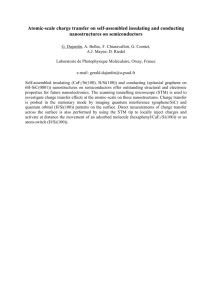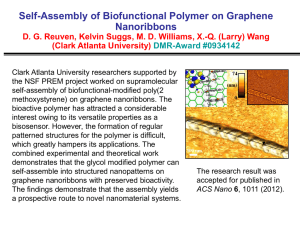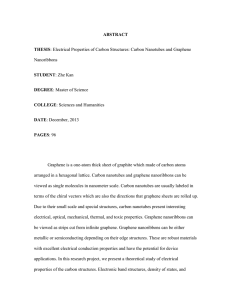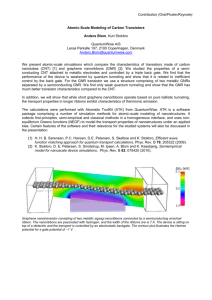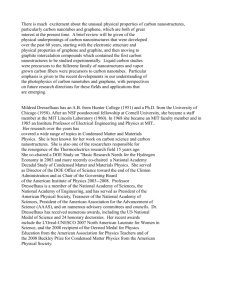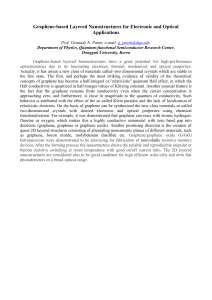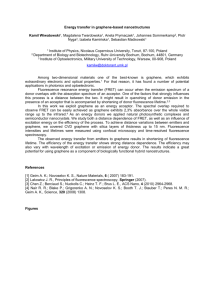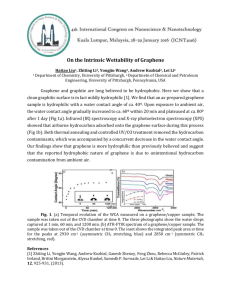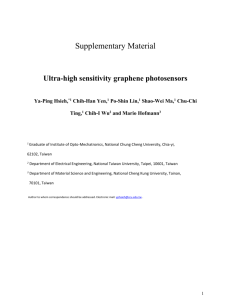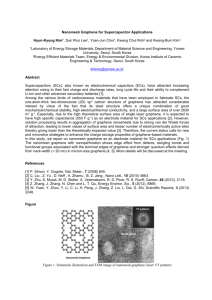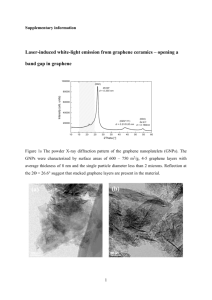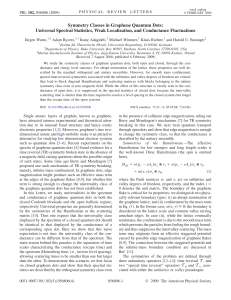Ecole Doctorale Ondes et Matière
advertisement
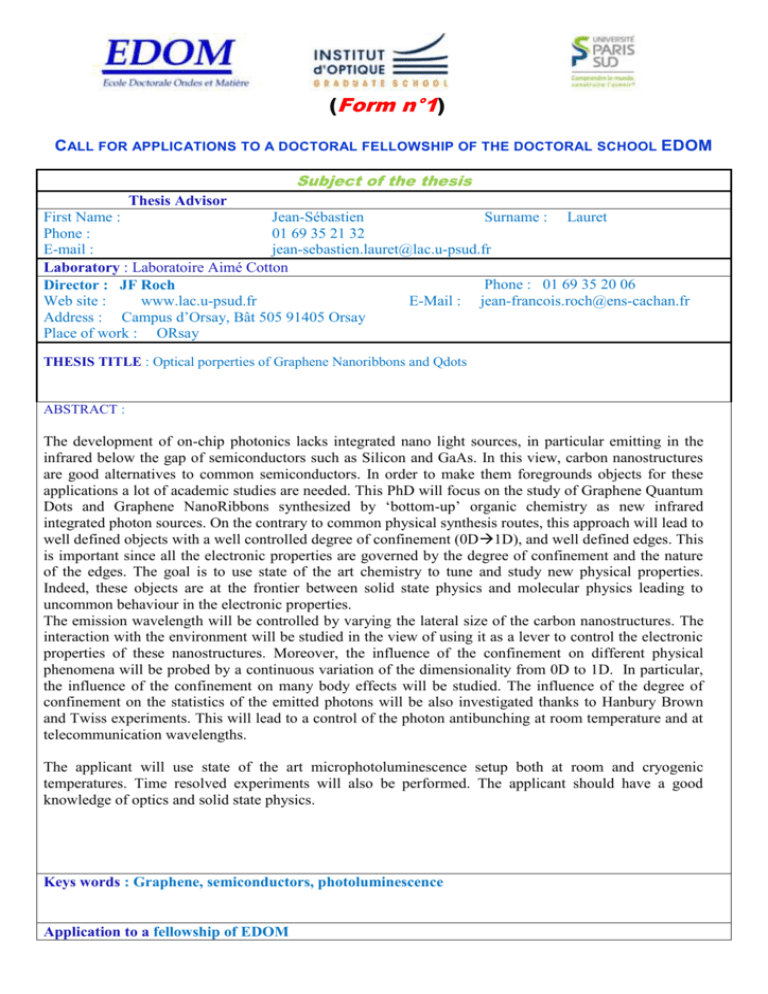
(Form n°1) CALL FOR APPLICATIONS TO A DOCTORAL FELLOWSHIP OF THE DOCTORAL SCHOOL EDOM Subject of the thesis Thesis Advisor First Name : Jean-Sébastien Surname : Lauret Phone : 01 69 35 21 32 E-mail : jean-sebastien.lauret@lac.u-psud.fr Laboratory : Laboratoire Aimé Cotton Phone : 01 69 35 20 06 Director : JF Roch Web site : www.lac.u-psud.fr E-Mail : jean-francois.roch@ens-cachan.fr Address : Campus d’Orsay, Bât 505 91405 Orsay Place of work : ORsay THESIS TITLE : Optical porperties of Graphene Nanoribbons and Qdots ABSTRACT : The development of on-chip photonics lacks integrated nano light sources, in particular emitting in the infrared below the gap of semiconductors such as Silicon and GaAs. In this view, carbon nanostructures are good alternatives to common semiconductors. In order to make them foregrounds objects for these applications a lot of academic studies are needed. This PhD will focus on the study of Graphene Quantum Dots and Graphene NanoRibbons synthesized by ‘bottom-up’ organic chemistry as new infrared integrated photon sources. On the contrary to common physical synthesis routes, this approach will lead to well defined objects with a well controlled degree of confinement (0D1D), and well defined edges. This is important since all the electronic properties are governed by the degree of confinement and the nature of the edges. The goal is to use state of the art chemistry to tune and study new physical properties. Indeed, these objects are at the frontier between solid state physics and molecular physics leading to uncommon behaviour in the electronic properties. The emission wavelength will be controlled by varying the lateral size of the carbon nanostructures. The interaction with the environment will be studied in the view of using it as a lever to control the electronic properties of these nanostructures. Moreover, the influence of the confinement on different physical phenomena will be probed by a continuous variation of the dimensionality from 0D to 1D. In particular, the influence of the confinement on many body effects will be studied. The influence of the degree of confinement on the statistics of the emitted photons will be also investigated thanks to Hanbury Brown and Twiss experiments. This will lead to a control of the photon antibunching at room temperature and at telecommunication wavelengths. The applicant will use state of the art microphotoluminescence setup both at room and cryogenic temperatures. Time resolved experiments will also be performed. The applicant should have a good knowledge of optics and solid state physics. Keys words : Graphene, semiconductors, photoluminescence Application to a fellowship of EDOM
